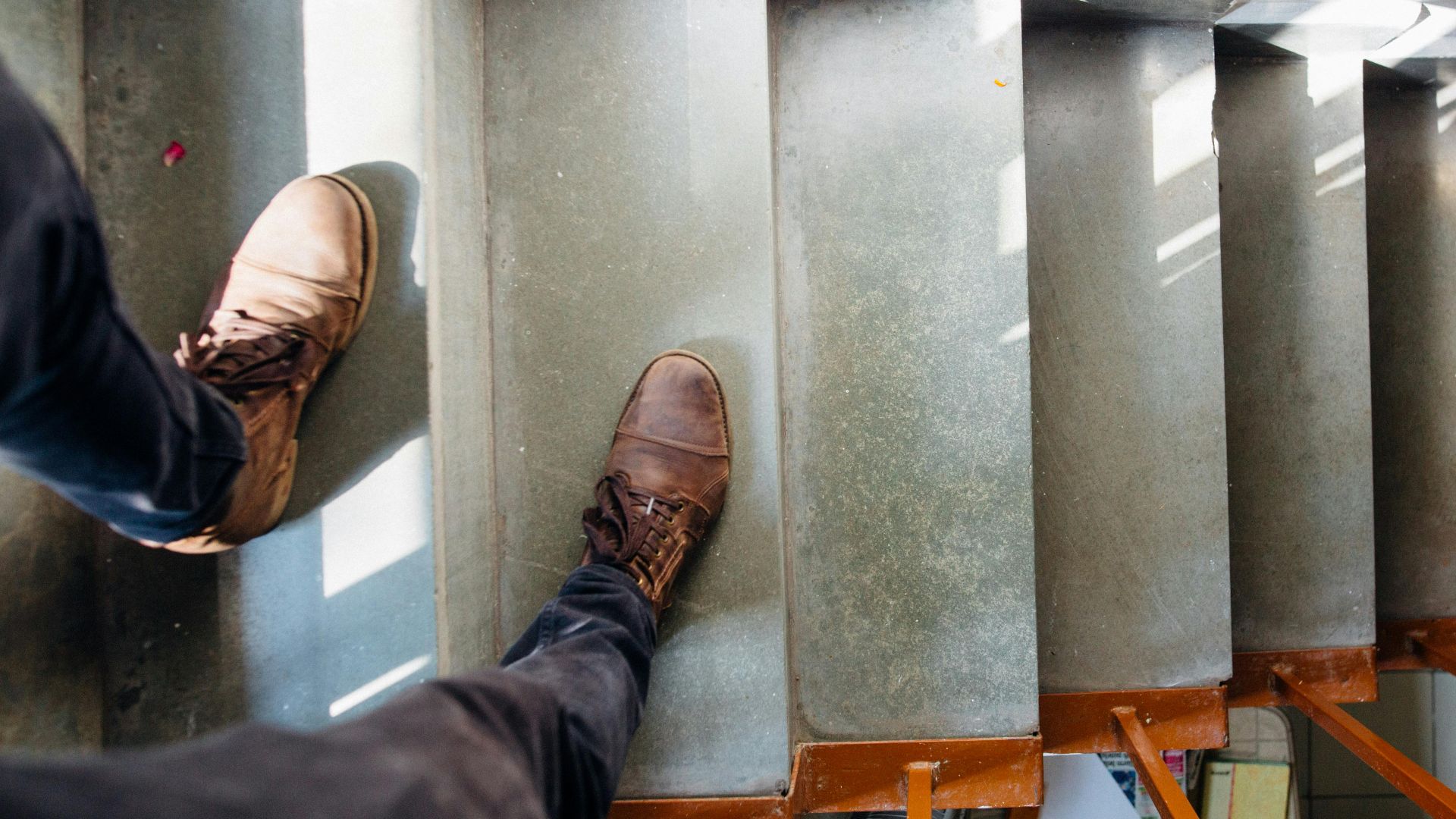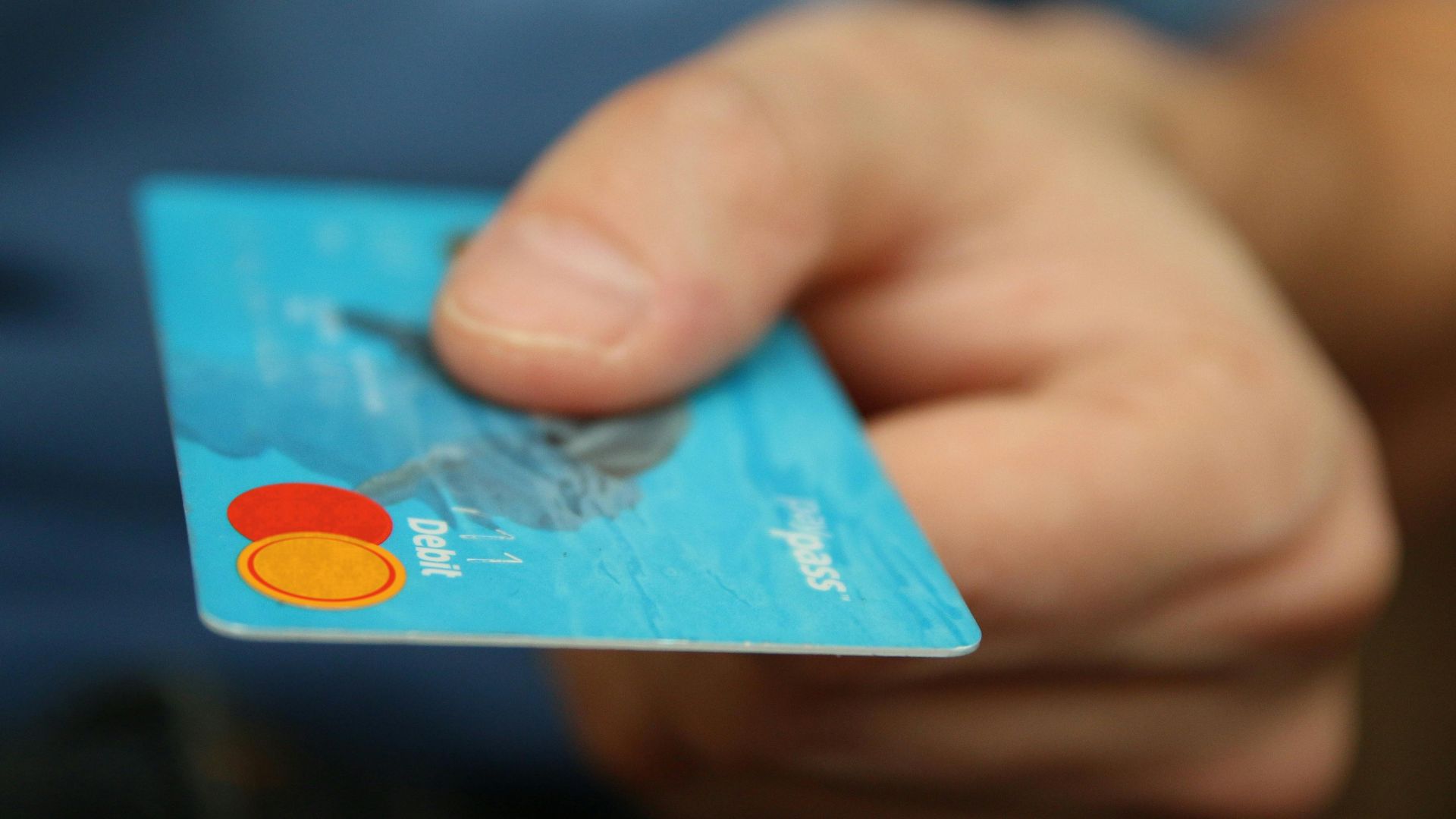Financial Headaches
Those “thrifty” decisions you’re making in your homes, health, tech, travel, etc., might seem smart at the moment, but they can lead to long-term regret down the line.

When That Small Leak Doubles Your Water Bill
Even the smallest plumbing issues can quietly drain resources. A faucet dripping once per second wastes more than 3,000 gallons yearly, and undetected toilet leaks can add up to $200 to annual water bills. Over time, these persistent leaks can soak insulation and cause hidden structural damage.
Cheap Paint That Peels After One Season
Low-cost paint often fades as fast as it dries. Thin formulas flake in months, especially in humid rooms where moisture clings to every surface. Instead of protecting your walls, cheap paint creates extra work by inviting mold and the need to repaint sooner than expected.
Patching Roofs With Tar Instead Of Fixing The Decking
Tar might seem like a fast fix for a leaky roof, but it’s rarely a lasting one. Moisture still slips underneath, quietly rotting the wood below. So, learn before you suffer because that quick patch often leads to a bigger job later, with soaring repair costs.
Letting Air Filters Go 6 Months Or More
Clogged filters turn your HVAC system into a power-hungry machine. When airflow slows, the unit strains to keep up by pushing energy bills higher and wearing down essential parts. Poor air quality and eventual breakdowns are the price of putting off a simple replacement.
Avoiding Professional Pest Control Until It's Too Late
Tiny invaders rarely come with a warning. Skipping annual pest checks might save a little, but termites and other wood-boring pests work silently. By the time you notice damage, repairs can run into the thousands, far more than early prevention would have cost.
 Garda Pest Control Indonesia, Pexels
Garda Pest Control Indonesia, Pexels
Saving On Sealant That Fails In Wet Areas
Latex caulk deteriorates quickly in damp environments such as showers, often losing effectiveness in less than a year. Silicone sealants, by contrast, can remain intact for more than ten years. Once water breaches the seal, it can lead to rot in framing materials and trigger mold growth within two days.
Ignoring Electrical Flickers To Save On An Inspection
Those occasional flickers may seem harmless, but they can signal serious electrical strain. Left unchecked, they may point to overloaded circuits or worn wiring. A small inspection fee now prevents the damage that shows up later as scorched panels or costly outages.
Buying One-Off Tools Instead Of Renting Or Borrowing
Some tools earn their keep; others become expensive shelf decor. Buying specialty gear for a single job clutters your garage and drains your budget. Renting makes more sense for tasks you won’t repeat, and most stores even offer short hourly rates.
Choosing The Cheapest Contractor Without Checking Licenses
Choosing an inexpensive contractor for any kind of job without verifying credentials can lead to costly setbacks. In many states, unlicensed work may void homeowner insurance policies, exposing owners to uncovered damages. California also imposes fines up to $10,000 for hiring unlicensed labor.
Buying Bulk Items Without Storage Plans
Bulk buying seems practical, but food spoils quickly without airtight storage or a plan to use it. Perishables rot, and dry goods attract moisture or pests. What started as a money-saving effort ends with waste, especially when the items expire long before use.
Freezing Foods That Don't Thaw Well
Not every item belongs in the freezer. When ice crystals form, they ruin the texture of soft cheeses and creamy sauces by leaving behind a separated, mushy mess. Quality disappears, and what seemed like a smart way to stretch leftovers often ends in disappointment.
Using Expired Spices That Have No Flavor Left
That well-stocked spice rack might be fooling you. Ground seasonings lose their strength long before they look off. As flavor fades, we add more, which chases a taste that never lands. In the end, meals turn bland and inconsistent, no matter how good the ingredients might be.
Microwaving Leftovers In Plastic Takeout Containers
Not all plastics hold up in the microwave. Some break down when heated, releasing chemicals like BPA and phthalates into your food. Glass and ceramic containers are safer bets, which will save you from a reheat that might just introduce risks you didn’t bargain for.
Diluting Dish Soap And Cleaners' Past Effectiveness
Cheapening the mix too much defeats the point of cleaning. Diluting cleaners might feel like stretching a dollar, but it weakens the formula's power. Once too watered down, soap can't lift grease or destroy bacteria. The bottle lasts longer, but the surface stays grimy.
Ignoring Fridge Seals That Leak Cold Air
Cold air shouldn’t sneak out of your fridge, but a worn gasket makes it happen. As temperatures rise inside, the compressor strains to keep up while wasting electricity. Even efficient models can’t compensate. A cheap, unchecked seal eventually turns into a slow, expensive energy leak.
Skipping The Dishwasher For Handwashing To Save Water
Handwashing dishes might feel more intentional, but it uses far more water than a modern dishwasher. Without high-heat sanitation or water control, this method wastes gallons and time. The extra effort doesn’t guarantee savings and often leads to higher utility costs.
Buying Nonstick Pans That Peel In Months
Once the coating breaks down, performance suffers—and so does safety. Uncertified nonstick pans exposed to medium-high heat can degrade rapidly. The Consumer Product Safety Commission warns that they may release PTFE fumes and flakes into food, often within just a few months of use.
 Sternsteiger Germany, Getty Images
Sternsteiger Germany, Getty Images
Not Switching To Smart Thermostats
Manual thermostats miss opportunities to optimize comfort and cost. Smart versions learn your patterns by adjusting temperatures more efficiently. Without that automation, heating and cooling systems run longer than needed. They end up wasting energy along with the money you thought you were saving.
Reusing Disposable Razors Long Past Sharpness
When blades go dull, they pull unevenly and often scrape the skin. This causes skin irritation and an increased risk of infection. Disposable razors lose effectiveness after a few uses, and holding onto them too long turns a grooming tool into a skin hazard.
Skipping Dental Cleanings To Cut Costs
Delaying a cleaning doesn’t delay what’s happening beneath the gums. Plaque hardens, and minor problems grow worse without regular checks. What feels like a frugal skip can result in costly procedures that far outweigh the price of routine dental care.
Storing Expired OTC Medicine In The Cabinet
Old medicine may lose effectiveness over time and can become risky. Heat and moisture in bathroom cabinets speed up chemical changes that weaken or destabilize over-the-counter drugs. Clearing them out protects your health and ensures you’re not relying on ineffective treatments when you need them most.
Using Cheap Vitamins With No Verified Absorption
Not all supplements are created to deliver results. Low-cost options often contain forms of nutrients the body struggles to absorb, which means most of them pass through unused. That bottle on the shelf may offer more reassurance than real nutritional value.
Making Homemade Cleaners With No Germ-Killing Power
A surface can sparkle and still harbor pathogens. The CDC confirms that most vinegar-based cleaners do not meet EPA disinfectant standards. NIH lab tests show they lack the alcohol or bleach concentrations required to neutralize viruses or bacteria. Visual cleanliness isn't chemical effectiveness.

Washing Clothes In Cold Water Without Detergent Is Suited For It
Cold water helps conserve energy, but the detergent has to match. Standard formulas often leave dirt and odors behind, especially in heavy loads. Unless labeled for cold use, many detergents simply don’t activate well at lower temperatures, which leaves laundry not quite clean.
Skipping Sleep To Save On Heating Bills
Lowering the thermostat at night might shave your utility bill, but it can cost you sleep. Cold disrupts sleep cycles by making it harder to recover or focus the next day. Long-term sleep deprivation also undermines immunity and cognitive performance, which outweighs short-term savings.
Using Off-Brand Chargers That Fry Your Phone
That off-brand charger may look identical, but it can behave very differently. Without built-in voltage regulation, these cheap versions risk overheating or damaging your phone. Fires and battery failures linked to faulty models prove that cutting corners on power accessories can be a costly gamble.
Avoiding Energy-Efficient Devices To Save Upfront
LED lighting uses significantly less electricity and lasts longer than traditional incandescent bulbs. Still, many consumers hesitate due to the higher price tag at checkout. In the long run, outdated bulbs increase energy usage and inflate utility costs, particularly in well-lit households.
Using Cheap Light Bulbs That Burn Out Fast
Incandescent bulbs may cost just a buck or two, but their lifespan rarely exceeds 1,000 hours. Compare that to LED bulbs, and you'll see at least 75% less energy usage. That upfront saving disappears fast when you're constantly replacing dead bulbs and watching your electricity bill rise.
Running Old Appliances That Waste Electricity
Older fridges and dryers often use double the energy of today’s efficient models. Hanging on to outdated appliances means spending more every month. The quiet hum of old tech may come with an invisible cost of higher utility bills and strained systems.
Turning Off The Fridge At Night To Cut Bills
Unplugging the fridge overnight might seem clever, until your food spoils. Safe refrigeration needs constant cooling to stay below 40°F. Without it, bacteria multiply fast. That one cost-cutting habit can lead to wasted groceries and costs far greater than what you saved on electricity.
Settling For A Cheap Suit That Doesn't Fit
Clothes that don't fit right gather dust and chip away at confidence. A discounted price tag rarely makes up for poor proportions, especially when alterations surpass the markdown. An ill-fitting suit doesn't flatter, and the cost of reshaping it often outweighs the initial bargain.
Buying Extended Warranties With Low Payout Rates
Extended warranties sound reassuring, but most go unused. They often exclude what breaks or costs more than the repairs they claim to offset. The real letdown comes when fine print overrides the promise, and you're stuck covering the bill you thought was protected.
Cutting Auto Subscriptions Without Checking Penalties
That quick cancellation might not be so fast. Some car features come bundled with hidden fees for early termination. These charges can show up months later, eating into the savings you expected and proving that skipping the terms can cost more than keeping the service.
Wearing Shoes After Cushioning Has Broken Down
Worn shoes still hold their shape but not their support. When cushioning flattens, each step transfers stress to your joints. Discomfort creeps in gradually, starting with your feet and working its way up. Waiting too long to replace them means risking posture and long-term pain.
Booking Flights With 10-Hour Layovers To Save $40
Extended layovers bring more than boredom. Industry research shows they raise the risk of missed connections and travel fatigue. Costs for food and transit during long waits often add up. That cheap ticket may quietly become the most expensive option. Few travelers factor in the mental toll of long delays.
Ignoring Surge Protection For Expensive Electronics
One lightning strike or power surge can wipe out your devices instantly. Without protection, computers and routers sit vulnerable to grid fluctuations. Surge protectors offer a simple fix, but skipping them leaves you open to paying more than a few extra dollars upfront.
Buying Just For The Coupon
A coupon should save money, not justify the purchase. Chasing deals often means spending on things you'd never consider at full price. That rush of grabbing a discount can overpower common sense by leaving homes cluttered.
Chasing Cashback With Overspending
Spending to save doesn’t always add up. Cashback perks often tempt people to buy more than they need by believing the small return justifies it. In reality, the extra purchases outweigh the reward, which turns what looked like a savvy deal into a bloated receipt.
Canceling Insurance Policies Without Planning Alternatives
Uninsured renters risk losing tens of thousands of dollars if a disaster strikes, espFecially after fires. Letting go of health or car coverage without a fallback plan increases vulnerability to unexpected financial burdens. Beware because your “budget-friendly choice” may lead to heavy, long-term losses.
Paying Interest To "Build Credit History"
Paying credit cards in full each month builds the same history without interest charges quietly eroding your financial stability. FICO models reward on-time payments, not balances carried over time. The idea that carrying debt improves your credit remains a common and costly misconception.
Driving 20 Miles To Save On Gas
What feels like a smart gas run can quietly burn more than you save. A long detour uses fuel quickly, and traffic adds wear. Unless the price gap is large, you're spending more, especially when you factor in time and maintenance.
Booking Non-Refundable Hotel Rooms To Lock In Deals
That non-refundable room feels like a win until plans change. And then, a small saving becomes a total loss. Without flexibility, you're stuck. You lose the room and even the chance to rebook affordably when it matters most.
 Point3D Commercial Imaging Ltd., Unsplash
Point3D Commercial Imaging Ltd., Unsplash
Skipping Pet Vet Visits To "Avoid Unnecessary Costs"
Skipping routine vet visits might seem thrifty, but minor issues often go undetected. Small problems become serious and more expensive without early care. Preventive checkups save more than they cost. What you avoid now can lead to larger bills and harder decisions later.
Not Meeting With A Financial Advisor
Flying solo with money plans can leave you exposed. Without guidance, blind spots in retirement or budgeting go unnoticed. An advisor offers clarity and strategy. Skipping that meeting may cost far more than the fee, especially when long-term goals are at stake.















































